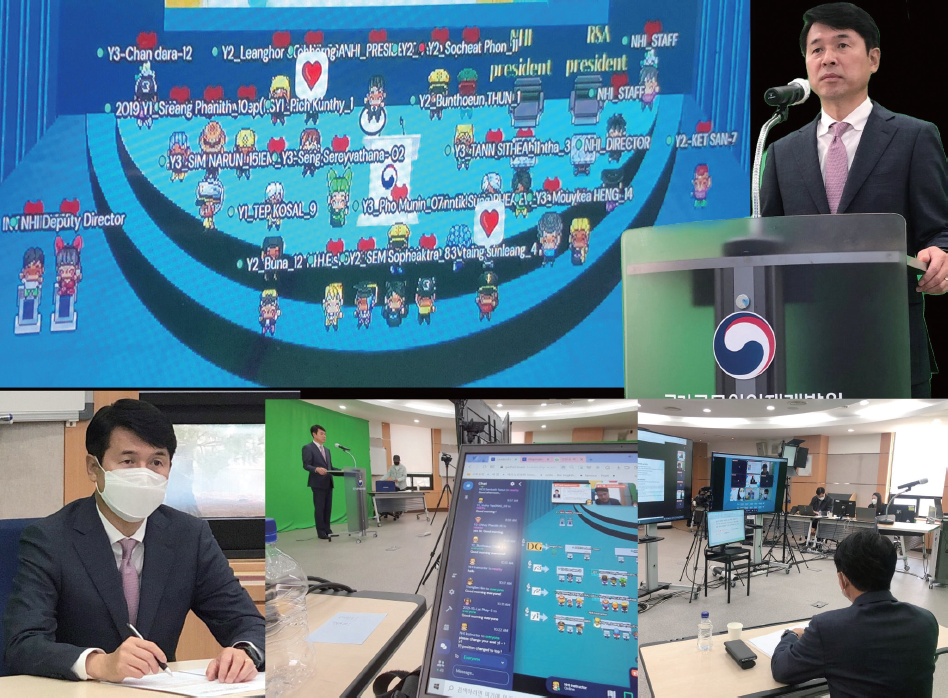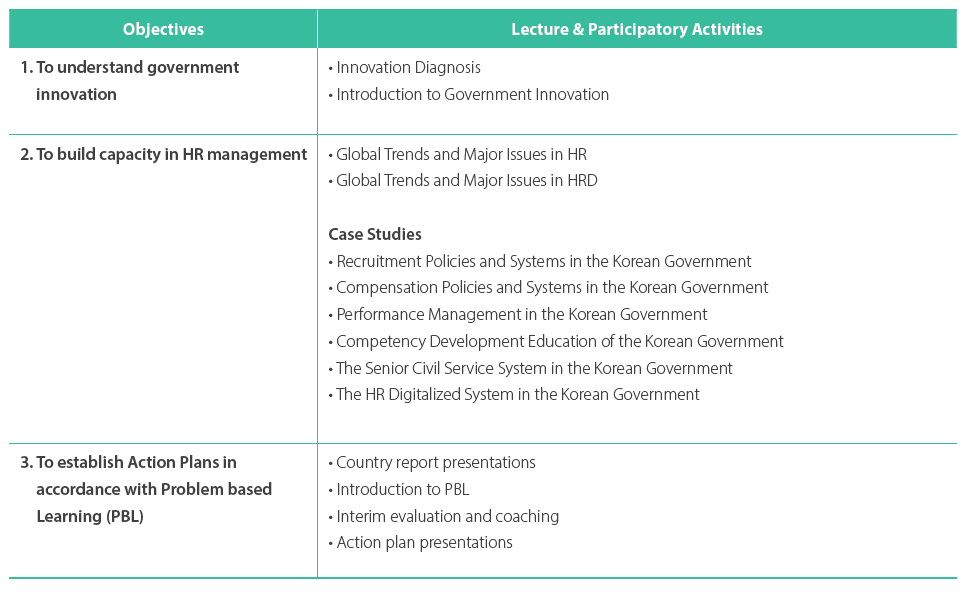Sponsored by the Korean Government

Introduction |
|---|
|
Since the launch of its first program in 1984, the NHI has operated 307 training courses for foreign government officials, providing education to 5,666 officers from 149 countries (as of the end of 2021). Until the early 1990s, the NHI's education programs were mainly targeted at public officials from Southeast Asian countries. However, since the mid- to late 1990s, as the Korean government has pushed ahead with policies to expand Official Development Assistance (ODA) and increase international exchanges, the NHI has provided education to officials from more diverse regions, such as Africa, South America, Eastern Europe, Central Asia, and the Middle East. Until the year 2000, the areas of learning focused on the economic development strategies that enabled Korea to achieve remarkable growth beginning in the 1960s, and examined the roles of public officials in national development. The NHI also shared experiences, both successful and unsuccessful, that Korea went through over the course of its own economic development. Since the year 2000, the education has focused more on areas in which Korea has gained a competitive advantage. At the request of the participating countries, or depending on the nature of the specific program, the NHI shares with participants key strategies of the Korean government, such as administrative innovation, e-government, human resources management and development, good governance, and so on. More recently, a competency-based approach, which is more tailored to the participating countries and the participants' positions, has been introduced in the NHI's ODA programs. A lack of public administrative capabilities is a serious challenge in the process of national development and transformation in developing countries. Competencies should be built to meet the core demands of national development in order to keep the goal of purposeful progress on the right track. In this sense, the NHI has developed and provided policy-case-based competency development learning programs. Since 2020, amid the COVID-19 pandemic, some of our programs were cancelled, while others, which participating countries agreed on, transformed into virtual learning. In 2021, the NHI's virtual programs were focused on active participatory learning methods and self-directed learning just as good as off-line programs could offer, using educational technologies and Metaverse platforms. |
Main Features of NHI’s ODA Programs |
|
The NHI's programs are performance-oriented and customized to fit the needs of the target group across all phases — including needs analysis, planning, running, and evaluation — to comply with national development paradigms reflecting changes in the global environment. Moreover, the NHI provides practice-focused education to build the critical competencies of government officials in the context of the situations that participating countries and the participants will face: specifically, public management skills required in their current stage of national development, and public service values to enhance work motivation and effectiveness. In a virtual learning situation, through a five-step systemic learning process, education effectiveness is maximized and the transfer of learning to the workplace is improved: Country (Case) report presentations (Situational analysis of the topic or problems) > theoretical learning > case studies (Comparative analysis of the topics) > Interim evaluation of action plans and coaching > Action plan (Problem/solution) presentations. The NHI offers programs in areas including Public Administration Innovation, Personnel Management Innovation, Public HRD, Organization Management Innovation, Policy Management Innovation, and e-government Innovation. 
This year, these international programs supported by the Korean government are scheduled: • Capacity Development Program for Civil Servants at the National Training Academy of Egypt (to be held in July) • Workshop for Quality Improvement of Public Service to Create an Integrity Zone (to be held in the second half of the year) 
|